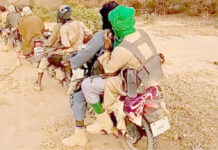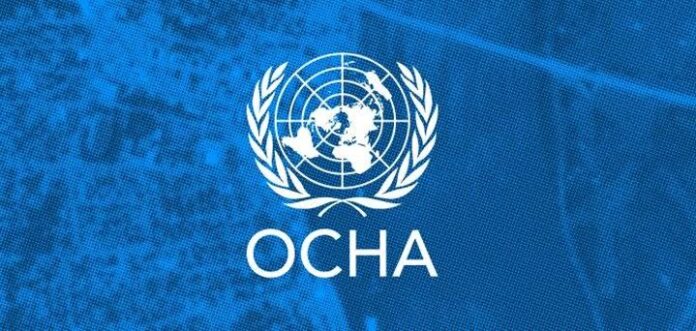The United Nation Office for the Coordination of Humanitarian Affairs office has said the conflict in Sudan continues to block efforts to respond to a deadly cholera outbreak that continues to spread across the country.
The number of suspected cases has increased by more than 100 per cent over the past month, with nearly 8,300 suspected cases and more than 200 deaths reported in nine states as of December 23, according to the World Health Organisation and Sudan’s Ministry of Health.
This includes more than 1,800 suspected cholera cases in Al Jazirah state, where intense clashes this month between the Sudanese army and a rival military group known as the Rapid Support Forces have displaced at least 300,000 people.
OCHA in a statement on Tuesday said humanitarians had been working to support the detection and treatment of cholera cases, as well as vaccination campaigns.
But the ongoing fighting continues to hamper response efforts and disrupt access to basic public health services.
Roughly two-thirds of Sudan’s population lacks access to healthcare, with more than 70 per cent of hospitals in conflict-impacted areas no longer functional.
Meanwhile, the UN and humanitarian partners continue to support civilians in Ukraine who have been severely impacted by the Russian invasion, as the onset of winter heightens their suffering.
The UN Humanitarian Coordinator in Ukraine, Denise Brown, led an aid convoy to the Kharkiv Region, located in the east, on Monday – Christmas Day.
The trucks brought food, blankets, winter clothes, hygiene kits, and home repair supplies to nearly 1,500 civilians in Kivsharivka, a front-line town that has been devastated by the war.
While there, Brown reported hearing the constant sound of explosions and artillery fire. Residents and local authorities reported that ongoing shelling has disrupted their access to critical services and supplies.
They said it had deepened their reliance on humanitarian assistance. Many of those remaining in Kivsharivka are older people, people with disabilities, and other vulnerable groups.
On Christmas Eve, Brown and a group of aid workers visited the rural village of Hroza, where an attack on October 5 killed 59 people, roughly 20 per cent of the population.
Brown spoke with some of the survivors she first met while visiting Hroza the day after the attack.
In the immediate aftermath, the UN and humanitarian partners delivered household items, hygiene supplies, and home repair materials, as well as cash assistance and psychological support to civilians.
This year, the humanitarian community has provided life-saving assistance to more than 970,000 people in the Kharkiv Region and to more than 10.5 million overall across Ukraine.
The United Nation Office for the Coordination of Humanitarian Affairs office has said the conflict in Sudan continues to block efforts to respond to a deadly cholera outbreak that continues to spread across the country.
The number of suspected cases has increased by more than 100 per cent over the past month, with nearly 8,300 suspected cases and more than 200 deaths reported in nine states as of December 23, according to the World Health Organisation and Sudan’s Ministry of Health.
This includes more than 1,800 suspected cholera cases in Al Jazirah state, where intense clashes this month between the Sudanese army and a rival military group known as the Rapid Support Forces have displaced at least 300,000 people.
(NAN)





